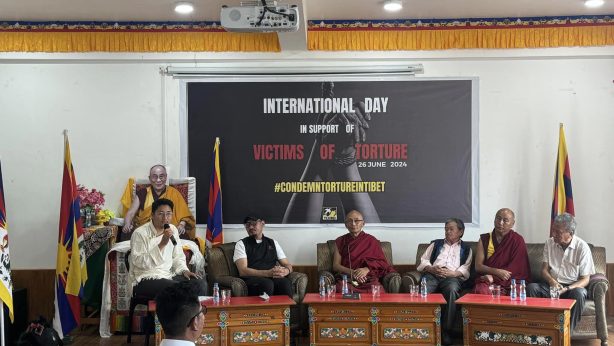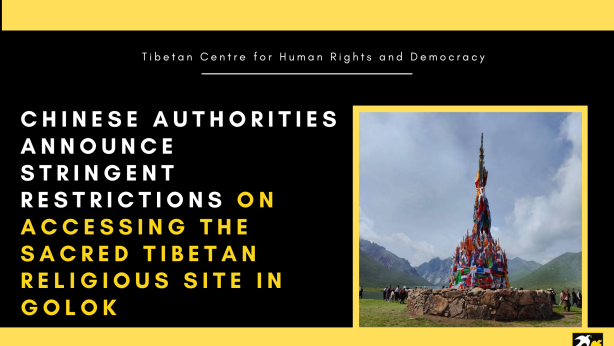Drapchi Prison: Tibet’s most dreaded prison
The Tibetan Centre for Human Rights and Democracy (TCHRD) today released a report entitled “Drapchi Prison: Tibet’s Most Dreaded Prison”. The 70-page report provides insight into one of the most notorious prisons in Chinese-occupied Tibet based on reliable information gathered over the years.
“Through this report, one can discern the contradiction between the official Chinese statement with that of actual reality concerning the prison condition, treatment of prisoners, and total number of Tibetan political prisoners within Tibet,” stated Mr. Lobsang Nyandak Zayul, the Executive Director of TCHRD.
Contrary to a recent claim made by a top-notch official that Tibet has currently only 115 Tibetan political prisoners, TCHRD recorded 252 known Tibetan political prisoners as of June 2001. From the total figure, 129 political prisoners remain incarcerated in Drapchi Prison alone, including 26 female political prisoners.
All these prisoners who serve out their sentences in various prisons, detention centres and labour camps in Tibet are charged with “endangering state security” which involves partaking in political activities such as pro-independence demonstration, poster pasting incident and for possessing photos and videos of the Dalai Lama. The denial of basic human rights is apparent from the reasons for arrest and the inhuman treatment meted out to them while in detention and during imprisonment.
There have been cases where prisoners have succumbed to injuries from severe beatings and official maltreatment. Since 1987, 27 deaths occurred in Drapchi Prison and 47 political prisoners received sentence extension on alleged charges of non-conformity and disobedience to prison rules and regulations.
The report details 21 protest incidents both major and minor within Drapchi Prison initiated by individuals or by group as a whole. The largest and consequently the most violently suppressed of all protests have been the May 1998 protest that resulted in the known death of eight political prisoners and sentence extension of many more.
“Entrapped in the meshed wires of hapless prison system, the only recourse that the prisoners can take to vent their pent-up feeling is through protest and demonstration.
The severity of punishment in the form of beatings and sentence extension never seem to dull the freedom spirit of the Tibetans,” said Mr. Lobsang Nyandak Zayul.
With the Chinese annexation of Tibet in 1959, Drapchi military garrison was transformed into a prison though it retained the semblance of army camp well into the early sixties. Drapchi Prison has over the years, mutely witnessed Chinese brutality and beatings, death and deceit, from the days of Chinese invasion in the 50’s, down to the infamous Cultural Revolution of 60’s and 70’s to the 80’s active pro-independence period up till the present times.


